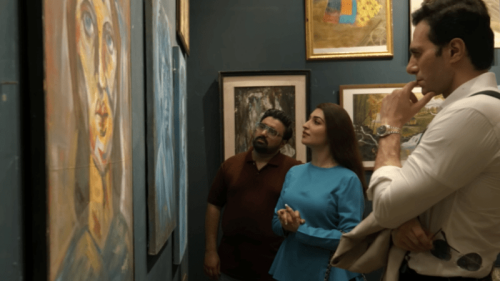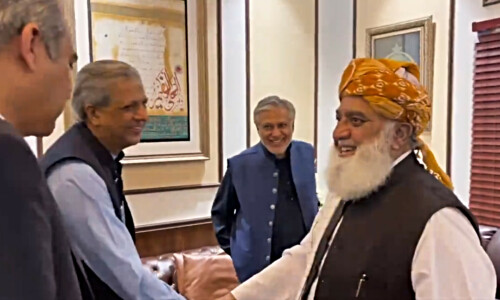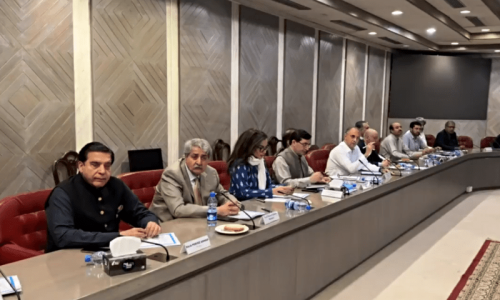LONDON: In a review of My Cousin Vinny in 1992, I praised Joe Pesci for his performance in GoodFellas, claiming that one of the most satisfying things about Scorsese’s gangster picture was “discovering” Pesci in it. I wrote: “It was the kind of performance which made you want to get out Raging Bull, Once Upon a Time in America and Lethal Weapon 2 on video, wondering why you failed to take much notice of him first time round.”
Sixteen years later, I know enough about the film-making process never to write a review like that again. To credit Pesci with being the author of his “performance” – to imagine that he is primarily responsible for the fact that he leaps out of the screen in GoodFellas – is woefully naive. It is precisely the sort of mistake that a critic who had never set foot on a movie set would make.
I’ve just finished co-producing How to Lose Friends & Alienate People, the forthcoming film based on my book of the same name, but that is not the only experience that has upended my whole critical perspective. I wrote a picture for Warner Bros in 2003, and I have worked on screenplays and treatments for half a dozen other films, some of which have sold. More importantly, I have spent the past 15 years or so hanging out with directors, producers, writers, actors, editors, distributors – even studio heads – and used that access to try and learn as much as I can about the movie business. I am constantly struck by how often their answers have challenged my preconceptions as a critic.
For instance, there was the time I sat next to one of the producers of The Queen at a dinner party. I praised the film for presenting her as an essentially vulnerable figure and singled out the scene towards the end in which she tells Tony Blair that she was “just a girl” when she ascended to the throne. “Peter Morgan’s such a great writer,” I said. “Actually, Scott Rudin came up with that,” he said.
As a reviewer, I always accepted that film is a collaborative medium, but until I started spending time with film-makers I had no idea just how true that is. It is most obvious when it comes to the screenplay. It is fairly well known that the officially credited writers of a film are rarely, if ever, the only authors of the shooting script, but I was still shocked when a famous screenwriter confided he’d been Oscar-nominated for a film he hadn’t written a single word of.
But it’s not just the screenwriter who is a largely fictional construct. The word director can also be very misleading, with the control they exert varying enormously from film to film. If it is a low-budget, independent picture that the director in question has written and produced, then, obviously, it will be his or her baby. But the role of the person calling the shots on a film like that will be so different from the role of, say, Christopher Nolan on The Dark Knight, that it’s ludicrous to use the same word to describe what they do. (“Traffic cop” was the phrase that the director of one of the biggest blockbusters of last summer used.) On the whole, directors hate making these big-budget popcorn movies precisely because they have so little room to manoeuvre. Like the actors, they do it for the money – which isn’t to say the pictures necessarily turn out badly. In fact, they are often better than the low-budget “passion projects” that the same directors pour their hearts and souls into.
I now realise that describing someone as the “director” – or “screenwriter” or “producer” – is completely misleading, in that there are no clearly circumscribed areas of responsibility on a film set. Those official titles are, at best, starting points, guideposts that sometimes point you in the right direction, but equally often lead you astray. Film-making is a fluid, mercurial process in which power is constantly changing hands, not just between individuals, but between groups of individuals, creating makeshift alliances that can dissolve at any second.
In fact, visiting a film set is a lot like taking a tour of the Westminster parliament, with little cabals of conspirators everywhere. Who’s in charge? Who’s in and who’s out? People’s official titles are the equivalent of what Walter Bagehot called the “dignified” part of the English constitution. The “efficient” part – where power really lies – is concealed beneath that facade.
To give just one example, Mike Figgis told me that when he was making Mr Jones, Mike Medavoy, then chairman of TriStar Pictures, invited him to see the trailer that the studio had cut of the film without Figgis’s knowledge. “It’ll give you an idea of the film you should be making,” said Medavoy.
Almost every aspect of the film-making process can become a battleground, but the most common place for conflict is the cutting room. As a fledgling critic, I hadn’t realised the extent to which films are created “in the edit”. I’m not just talking about obvious things like the shape of any given scene, but whether that scene is funny or not. Alexander Mackendrick, the director of Whisky Galore and Sweet Smell of Success, pointed out that you can always make a scene funnier by shaving a little bit off the beginning and the end. That is profoundly true – and there are many disastrous comedies that have been saved by skilled editors.
Perhaps the biggest surprise is how an editor can make an actor who has “phoned in” his performance look like he’s been immersed in the role for months. What the director sends over in the can is just paint on the editor’s palette. If any member of a film’s crew deserves to be called an artist it is the editor, but, of course, they are rarely allowed to exercise their craft without a host of power-crazed egomaniacs breathing down their necks. Typically, the director, writer and producer will all have their own ideas about how the film should be cut, and the finished article is frequently some bizarre mishmash. It is hardly surprising that how a movie turns out is largely dependent on luck.
Pauline Kael, the New Yorker’s celebrated movie critic, worked for Paramount between 1979 and 1980 and concluded that Hollywood studios produce many terrible pictures because the people calling the shots know nothing about film-making and are only interested in making money.
Like most critics, I took that as gospel, but I’ve now come to the opposite conclusion. The reason so many pictures turn out badly, in my experience, is because the so-called “artists” – particularly the directors – behave like prima donnas, imagining they can wrest control over the entire process, while the “suits” have to battle to be heard. And this, in spite of the fact they often know more about movie-making than the people they employ to make them. In general, the attitude of the people on the business side is more mature than those on the creative side. Rather than see themselves locked in a struggle between art and commerce, they recognise that the two are inseparable, that for a film to “work” it has to succeed both artistically and commercially.
Towards the end of Kael’s life I asked her about her sojourn in Hollywood. She wouldn’t tell me which movies she’d worked on, but she did say that when the makers of the pictures in question had taken her advice they’d worked out well, and when they hadn’t, the films had turned out badly. She overlooked the fact she had offered this advice in her capacity as a studio executive, not as an independent critic. It was true in 1980 and it remains true today: when film-makers listen to the “suits”, their movies turn out better.
—Dawn/Guardian News Service















































Dear visitor, the comments section is undergoing an overhaul and will return soon.